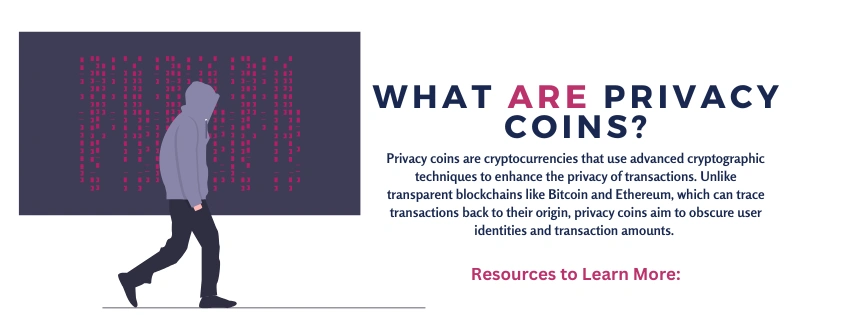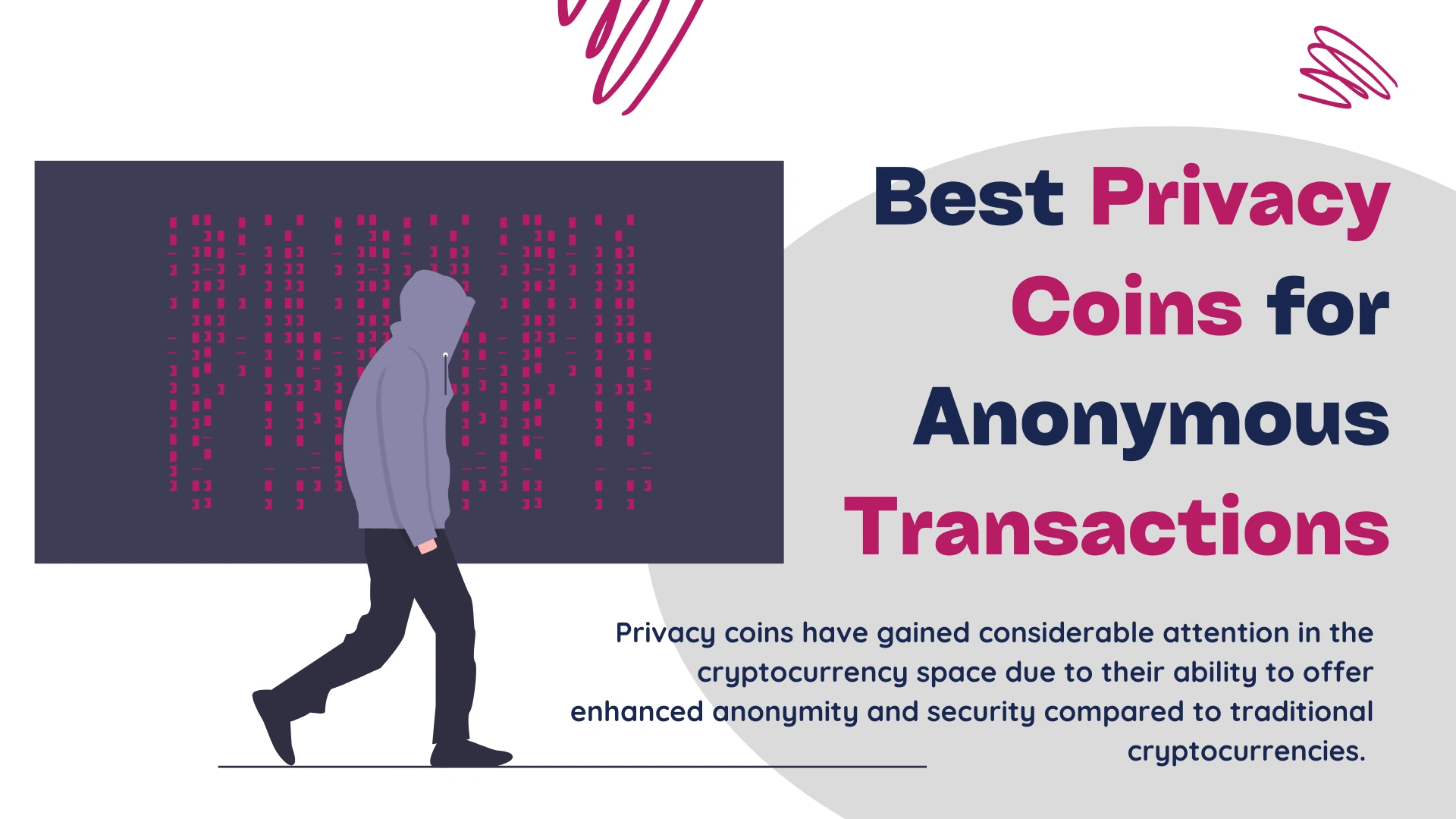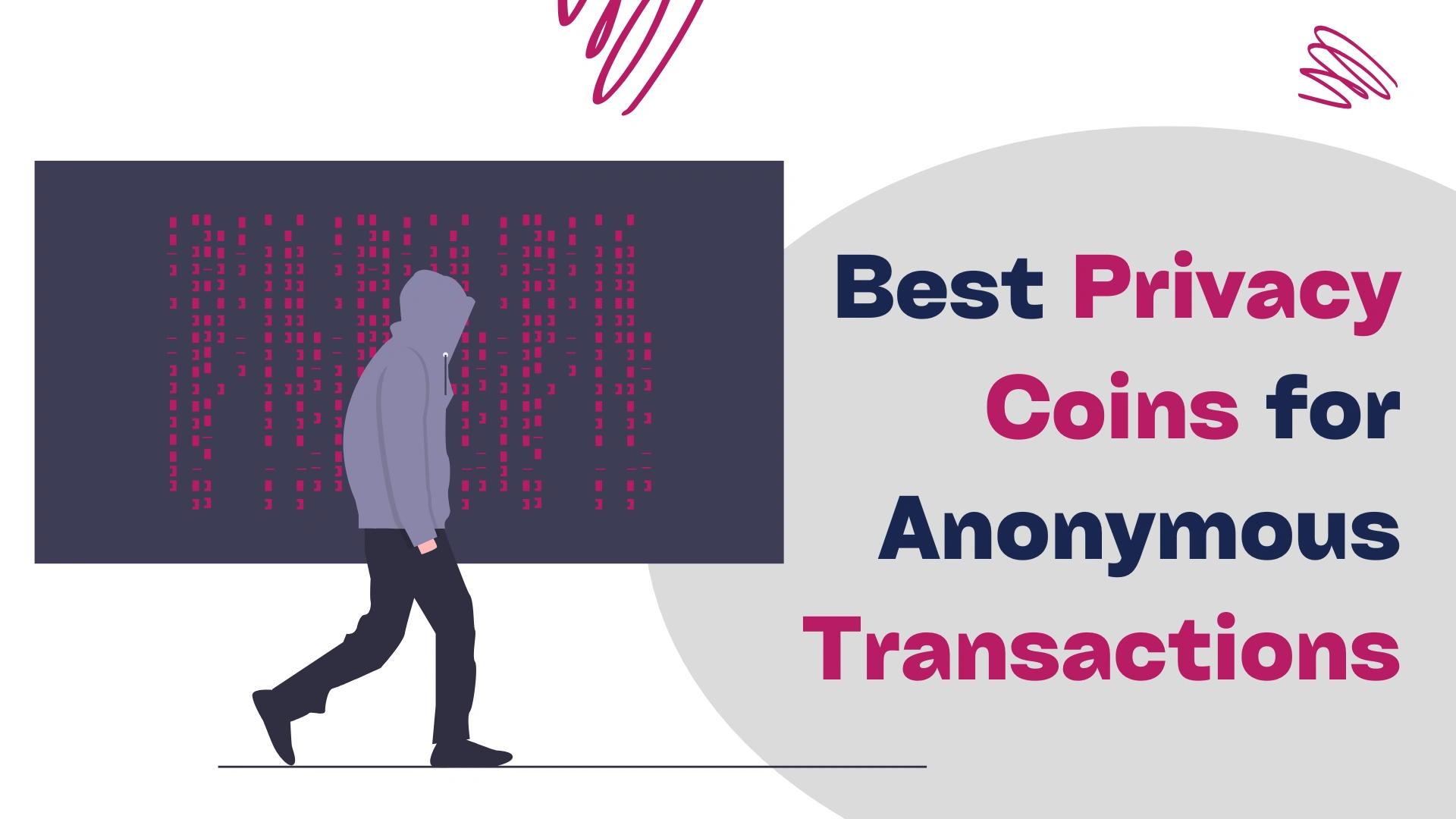Privacy coins have gained considerable attention in the cryptocurrency space due to their ability to offer enhanced anonymity and security compared to traditional cryptocurrencies. These digital assets are designed to protect user identities and transaction details, making them an attractive option for individuals seeking to maintain their privacy. In this article, we’ll explore the top privacy coins available today, their features, strengths, and use cases. We’ll also compare them to help you understand which might be the best choice for anonymous transactions. Let’s dive in.
What Are Privacy Coins?

Privacy coins are cryptocurrencies that use advanced cryptographic techniques to enhance the privacy of transactions. Unlike transparent blockchains like Bitcoin and Ethereum, which can trace transactions back to their origin, privacy coins aim to obscure user identities and transaction amounts. They typically achieve this through techniques such as zero-knowledge proofs, ring signatures, and stealth addresses. Notable privacy coins include Monero (XMR), Zcash (ZEC), Dash (DASH), and Privacycoin (PRCY).
- Monero (XMR): Monero is perhaps the most well-known privacy coin, built on the principles of decentralization and privacy. It uses a unique proof-of-work algorithm called CryptoNight, which makes it resistant to specialized mining hardware. Transactions on Monero are private by default, meaning that senders, receivers, and transaction amounts are obscured through cryptographic techniques. Monero also offers fungibility, meaning that each coin is indistinguishable from another, which is crucial for maintaining the coin’s value. For more information, visit Monero’s official website.
- Zcash (ZEC): Zcash offers selective privacy by using zero-knowledge proofs to shield transaction details. Users can choose to keep their transactions private or public, depending on their needs. The privacy feature, known as “shielded” addresses, is optional and can be enabled for enhanced security. Zcash’s zk-SNARK technology allows for the verification of transactions without revealing the details, making it an appealing choice for those who want both privacy and optional transparency. You can learn more at Zcash’s official website.
- Dash (DASH): Originally focused on fast transactions and low fees, Dash has incorporated privacy features through its PrivateSend function. This feature allows users to mix their coins with others in the network, making tracing difficult. Dash uses a hybrid proof-of-work/proof-of-stake consensus mechanism to ensure network security and transaction efficiency. More about Dash can be found on their official site.
- Privacycoin (PRCY): Privacycoin is an emerging privacy-focused cryptocurrency that leverages ring signatures and stealth addresses to ensure transaction confidentiality. It aims to provide fast and secure transactions with enhanced privacy, similar to Monero and Zcash but with additional features. You can discover more at Privacycoin’s official website.

Comparison Table: Top Privacy Coins
| Privacy Coin | Main Features | Consensus Mechanism | Key Technology | Official Website |
|---|---|---|---|---|
| Monero (XMR) | Privacy by default, fungibility, CryptoNight | Proof-of-Work | Ring signatures, stealth addresses | Monero’s official website |
| Zcash (ZEC) | Selective privacy, optional transparency, zk-SNARKs | Proof-of-Work | Zero-knowledge proofs | Zcash’s official website |
| Dash (DASH) | PrivateSend, fast transactions, low fees | Hybrid PoW/PoS | Coin mixing, masternodes | Dash’s official site |
| Privacycoin (PRCY) | Ring signatures, stealth addresses | Hybrid consensus mechanism | Advanced cryptographic techniques | Privacycoin’s official website |
How to Choose the Best Privacy Coin
Choosing the best privacy coin depends on your specific needs, such as the level of privacy you require, your budget, and whether you prefer a decentralized or hybrid consensus mechanism. Here are some considerations:
- Level of Privacy: If privacy is your primary concern, Monero and Privacycoin offer a high level of confidentiality. Zcash provides optional privacy, making it more adaptable depending on your use case.
- Transaction Speed and Fees: For fast transactions with minimal fees, Dash might be more suitable. Its PrivateSend feature ensures a balance between privacy and speed.
- Ease of Use: Monero and Zcash are user-friendly, even for beginners, thanks to their straightforward wallets and optional privacy settings.
- Community and Support: Consider the community behind the coin and the availability of support channels. Monero has a strong community and active development, making it a reliable choice.
For more details on choosing a privacy coin, you can refer to this comprehensive guide on privacy coins and this expert analysis on privacy coins.
Security Considerations for Privacy Coins
When dealing with privacy coins, security is paramount. It’s crucial to store your coins securely to prevent theft and loss. Here are some best practices:
- Use a Hardware Wallet: To protect your privacy coins from theft, use a hardware wallet like Ledger or Trezor. These wallets store your private keys offline, significantly reducing the risk of hacks.
- Regularly Update Software: Keep your wallet software updated to benefit from the latest security patches.
- Avoid Phishing Scams: Be vigilant against phishing scams and malicious websites that may attempt to steal your private keys.
- Enable Two-Factor Authentication (2FA): Adding an extra layer of security with 2FA on exchanges and wallets can protect your privacy coins from unauthorized access.
For more detailed security tips, you can refer to this detailed security guide and this comprehensive overview of cryptocurrency security.
Frequently Asked Questions (FAQs)
Q1: What makes privacy coins different from other cryptocurrencies?
- Privacy coins differ from other cryptocurrencies in that they are specifically designed to obfuscate transaction details and enhance user anonymity. Unlike Bitcoin or Ethereum, privacy coins employ advanced cryptographic techniques such as zero-knowledge proofs, ring signatures, and stealth addresses to maintain privacy.
Q2: Are privacy coins legal?
- The legality of privacy coins varies by jurisdiction. While they are legal in most countries, some governments have regulations against their use due to concerns over money laundering and tax evasion. Always check your local regulations before buying or using privacy coins.
Q3: Can privacy coins be tracked?
- Privacy coins use cryptographic methods to obscure transaction details, but that doesn’t mean they are completely untraceable. However, it is significantly more challenging to track transactions compared to transparent blockchains like Bitcoin. Enhanced privacy coins such as Monero and Privacycoin go to great lengths to maintain confidentiality.
Q4: How do I buy privacy coins?
- You can buy privacy coins on various cryptocurrency exchanges. Some popular exchanges that support privacy coins include Binance, Kraken, and Bittrex. Ensure you do your research on the platform’s security and fees before trading.
Conclusion
Privacy coins offer an essential service in today’s digital age by prioritizing user privacy and security. Whether you’re looking for complete anonymity or just increased privacy, there’s a privacy coin that suits your needs. When choosing a privacy coin, consider factors like transaction speed, privacy features, and security. Monero, Zcash, Dash, and Privacycoin are all excellent choices, each with its unique advantages. To maximize security and privacy, always store your coins securely and stay informed about best practices in the cryptocurrency space.
For further reading and to explore more about privacy coins, you can visit the following links:
- Monero’s official website
- Zcash’s official website
- Dash’s official site
- Privacycoin’s official website
- Comprehensive guide on privacy coins
- Expert analysis on privacy coins
This guide provides a detailed overview of the top privacy coins, their features, and considerations when choosing one. By understanding these aspects, you can make an informed decision that aligns with your privacy goals.


